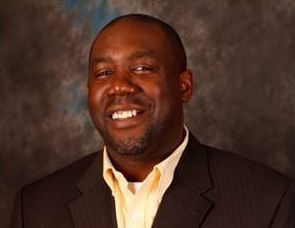I can’t count the number of times I’ve ran the line at a weekend youth football game for my son and his friends during the many programmes that we run in the Caribbean and for strangers that are a man short and in need of a man in black.
It’s hard for me to imagine kids in those games turning on me for making a questionable decision. But that’s exactly what seems to have happened to Richard Nieuwenhuizen on Sunday, December 2. The 41-year-old had volunteered to be a linesman in the game in which his son was playing between BuitenBoys and Nieuw Sloten on the outskirts of Amsterdam.
Nieuwenhuizen (pictured below) passed away not long after an altercation occurred in relation to the game. Inquiries into what exactly happened at the field are still ongoing. However, it is clear a group of Nieuw Sloten players surrounded Nieuwenhuizen after his son’s game, kicking and punching him.
Initially, he appeared to have recovered from the assault but, after returning home and going back to the ground to watch another game at the club, he collapsed and later died in hospital with his family surrounding him.
Three players – two 15-year-olds and a 16-year-old – are being charged with a number of serious offences. Manslaughter, assault and public violence for their apparent involvement in the attack.
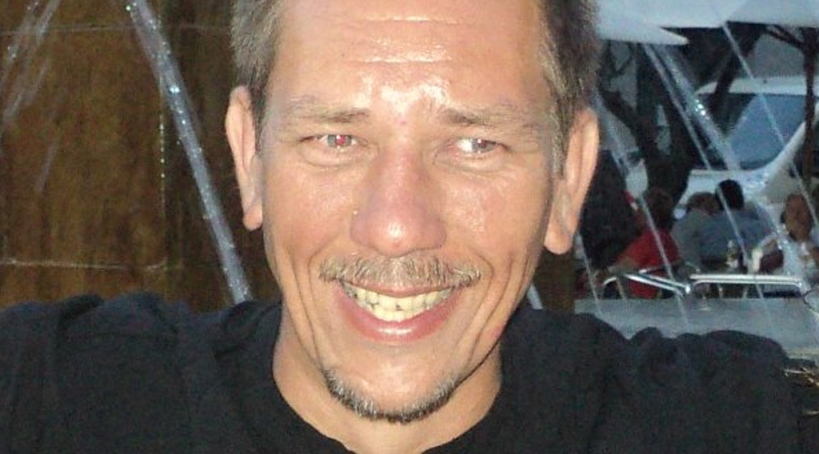
Such a shocking outcome from a youth sports encounter raises so many troubling questions. In the indignant hysteria to criticise and vilify the obviously wayward youth, I couldn’t help wondering how much violence there is at youth football games.
Amid my nonchalant belief that youth football is a pretty innocent game, notwithstanding the shocking events in Amsterdam, I took comfort from the fact that according to the Football Association (FA), which encourages referees to report any incident of violence or abuse at grassroots matches, the number of serious assaults has steadily declined.
In 2011-2012, there were just six reported incidents of serious bodily harm compared with 11 the year before that, 13 in 2009-2010 and 15 in 2008-2009.
Yet a closer examination of disciplinary statistics in some more troubled areas was, frankly, alarming. And, this in fact, reflects broader issues highlighted by the FA’s much vaunted Respect the Ref campaign, started in 2008.
According to the Respect campaign there has indeed been a decline in the most serious cases of assault but the number of incidences of improper conduct towards Referees has risen by 25 per cent, even accounting for the increase in the number of trained referees, this is worrying.
Recent end of season disciplinary statistics released by Birmingham County FA (BFA) show an even more troublesome jump in the number of junior players guilty of misconduct, leading to a sending off.
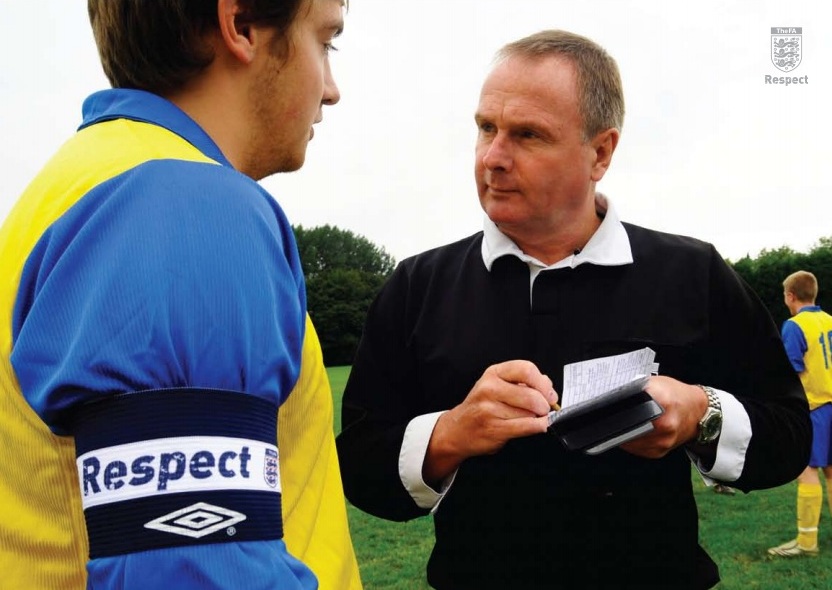
Two seasons ago, there were just 287 cases. In the 2011-2012 campaign that figure topped 453.
Some 109 cases of misconduct by youth football club officials were reported by the BFA.
The BFA said the stats were a “cause for concern” at an organisation with some 2,900 youth teams under its umbrella.
Mike Fellows, its disciplinary manager, wants parents to set a better example, according to an article on the subject in the Birmingham Mail.
“It is not the majority of players who are the problem – it is parents, spectators and club officials.
“Their examples of bad behaviour become reflected in the behaviour of certain players in their attitude towards the referee.
“Football is a game to be enjoyed and the sooner certain adults realise this and start to give good examples of supportive behaviour and respect, the sooner these figures will be reduced.”
Our Baby Beckham’s seem to be modelling their behaviour on Kung Fu Kick Cantona players and parents.
Our football stars of tomorrow are behaving atrociously in many cases. Some 18 junior games had to be abandoned due of problems, with 43 reports of fights on the pitch and two attempted head-butts.
How is it possible that some 55 different under 14s were shown a red card, 108 under 15s and 118 under 16s – all up on the previous season.
Our Birmingham based friends say roped off areas at games had actually “helped” referees in recent times.
It wasn’t so long ago that youth team coaches in the United Kingdom used to smirk at the troubles their United States cousins were having with misbehaving players and their increasingly competitive youth soccer moms and dads.
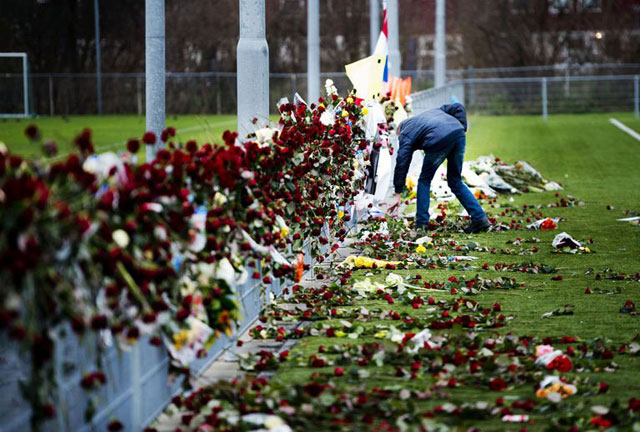
One can’t help wonder if the very essence of the youth game is at risk. Amid our glances towards Amsterdam and our condolences, is there a greater need for moral rather than technical guidance in the youth game?
The wonderful mentoring, leadership, self esteem, communication and team building skills I gained from playing sport at a young age and subsequently utilised professionally seems to have been submerged in a socially ambivalent quagmire of defeat and victory.
Amid better organised and equipped youth leagues, has the essence of sportsmanship among our youth changed. Has the very nature of competing for the fun of it, with verve and pride and respect ebbed away?
As I ponder such questions, I am struck by the memories of playing games with friends long since departed and the feeling that my own children may never experience those moments of bonding that make football such a beautiful and at times, fatally flawed, game.
ON TOP OF THE WORLD
For some time, we have been talking about suitable black candidates for top coaching jobs. The dearth of well-versed coaching and management talent has also been a laughably consistent theme in the arguments against quotas.
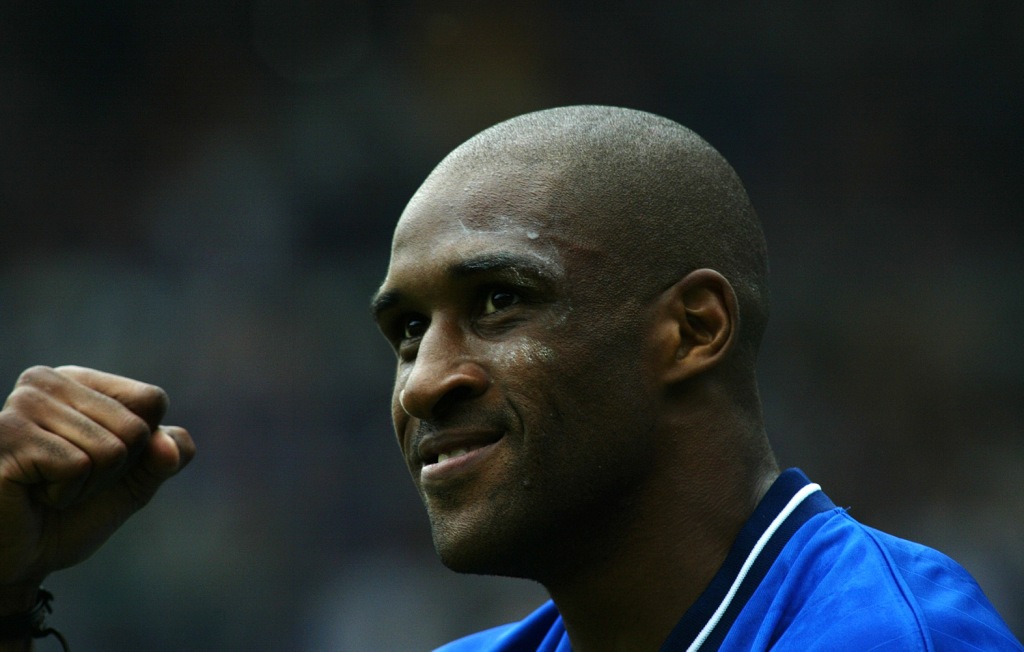
Well, hats off to our very own Brian Deane (pictured above) for being prepared to step outside the box. He was recently appointed manager at Sarpsborg 08 FF, a newly promoted Norwegian top tier team.
The scorer of the first Premier League goal in 1992, Deane had an illustrious career that saw him play for England three times and bang in many belters for Sheffield United, Leeds United and an array of clubs including Portugal’s Benfica.
I am, of course, overjoyed to see Deano coaching a good team. But I can’t help wondering why an intelligent, black prospective candidate like him never got the call in the UK.
It remains a blight on the game that such talent is often forced to look far from home for meaningful opportunities. At 44, the chance comes none too soon and I for one know he’s going to work hard to make it a successful dip into the murky waters that are football management.
Delroy Alexander is chairman of the Sacred Sports Foundation, based in Saint Lucia, and founded by former Lincoln and Macclesfield Town manager Keith Alexander. The Foundation aims to positively change the lives of those they work with and provide opportunities for people of colour from all around the world. The Foundation recently became the Caribbean arm of FARE. In 2013, the Foundation will join with partners to launch Sport in Black & White Conference – A Forum for Change.

